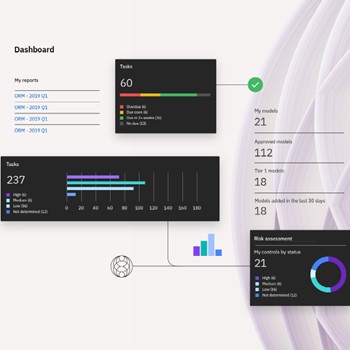Trust and the rise of Generative AI: Governance considerations to invoke confidence in Government
Share

Australia’s shift to digital government services has resulted in platforms like MyGov, which one million Australians visit every day. It comes as no surprise then that in the 12th biennial survey on e-government by the United Nations*, Australia ranks 7th among the leading countries in e-government development. However, this achievement also means citizens expect a seamless digital experience while expecting higher standards of governance and fairness than from the private sector. Digital services are facilitated by data resources and their analyses, including methods that utilise artificial intelligence.
Public trust in the use of assets and data resources needs to be high, and a recent whitepaper* posits that public citizen services are held to a higher account than private companies. Therefore, AI adoption in the public sector must navigate specific barriers to achieve world-class digital government while maintaining the trust of its citizens.
AI governance is a constant and critical consideration
Governance is a continuous spectrum, from the administration of citizen and government data through to the governance of AI itself. Many AI projects start off in testing and development environments, but without the right guardrails in place, they do not move into production. Strong and clear data and AI governance will produce two outcomes:
- The ability to inspect work programs according to a set of principles is crucial.
- The system continuously provides detailed information about models in their environments.
This builds a foundation of trust, enabling users and citizens alike to benefit from the advances of AI.

Simpler, robust processes are imperative to maintain trust in government process
However, with the rise of new technologies and speed to market outweighing proper processes, trust in government is being eroded across OECD countries. Citizens can experience complicated application processes and long wait times when applying for services. This typically happens after a life-changing or significant traumatic event, when difficult-to-navigate processes are already challenging.
In discussions with public service leaders and staff, we see strong support for testing out new applications of AI, particularly generative AI, where deep learning in a dynamic environment allows for logical deduction and pattern identification. This in turn addresses the need for fast and secure e-government services via customer-facing applications, as well as predictive modelling for better future outcomes in policy. Technology improvements have broadened the applicability of AI models, but there remains a large degree of caution in applying these models at scale.
Simply put, these models cannot exist without the right governance structures in place.
In a recent white paper, ‘Pathways to Trusted Progress with Artificial Intelligence’, leaders across the public sector with roles in digital government were brought together to discuss adoption and strategies to enhance trust in the use of AI in government.
Read here as esteemed authors Kevin Desouza and Gregory Dawson explore the principles of explainability, transparency, and stability and how this relates to public trust.
*United Nations EGovernment Survey 2022: The Future of Digital Government
Natalie Gunn
Natalie is a Data and AI specialist working with the public sector. Natalie is an experienced research scientist and led the healthcare agenda in IBM Research Australia. She has a PhD in medical biology and is passionate about bringing innovation into everyday use. In her current role, Natalie partners with customers in the public sector to promote Data and AI governance technologies in citizen services.











Today’s Pick
11th Annual Aus Goverment Data Summit
April 1, 2025
7th Annual NZ Government Data Summit
May 7, 2025
3rd Public Sector Comms Week
May 14, 2025
Subscribe
We send emails,
but we do not spam
Join our mailing list to be on the front lines of healthcare , get exclusive content, and promos.
AI appointment Australia Australian boost boosts business businesses covid-19 cyber cyber attack cyber security cybersecurity data data breach data management defence Digital employment enhance enhances fraud funding governance government grants infrastructure Innovation Lockdown management new zealand NSW NZ online privacy public Public Sector queensland renewable energy scams security Social Media Technology telecommunications victoria
-

Understanding and building your digital strategy
Digital Government, Opinion
-

Featured Leader: Jamie Morse on multi-channel strategies for communication
Communications, Featured Leader
-

Featured Leader: Tegan Tembe of NSW Treasury on creating solid planning strategies and processes
Featured Leader
-

Wirraka Maya Health Service improves patient care with My Health Record
Learning
Show More-

Effects of ineffective communication in the workplace
Communications, Personal Development
-

7 ways you can enhance your personal development skills
News, Personal Development
-

5 advantages of working in the public sector
News, Personal Development, Professional Development
-

7 causes of communication issues in the workplace
Communications, News, Personal Development
Show MoreLast Viewed